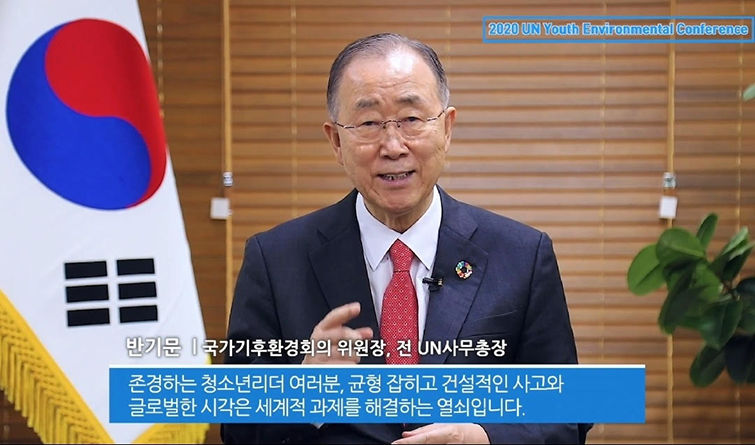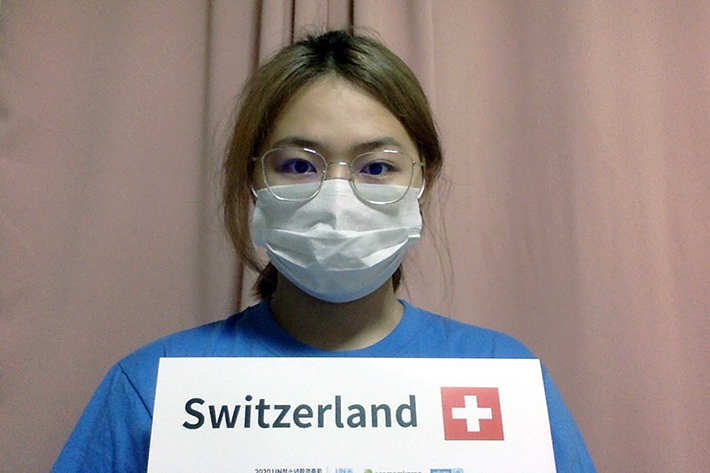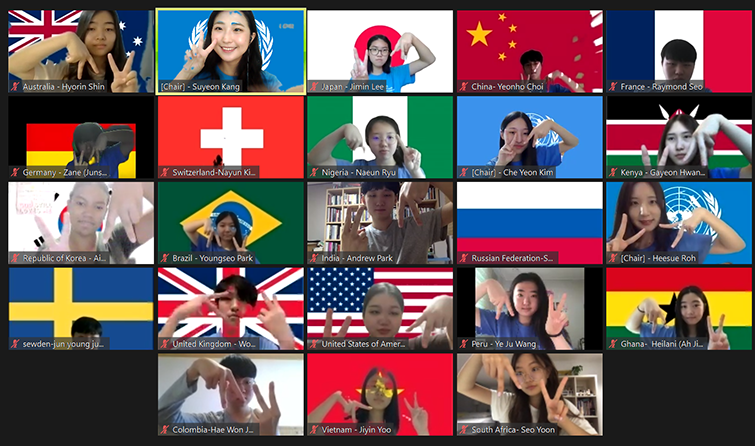Many bizarre incidents are happening around the world, including climate change and pandemics. For example, heavy rain and floods occur unexpectedly, new species of insects appear, and summer gets hotter while winter grows warmer. To hear opinions of other people and experts, I decided to join the United Nations Youth Environmental Conference (UNYEC). The UNYEC is a program for future global leaders to gather and experience a mini UN. They form a consensus on environmental preservation and come up with practical alternatives for solving the global environmental crisis with the eyes of young experts. Pre-college students participate as representatives of each country to discuss and announce sustainable solutions for the earth in the same manner as regular UN conferences. In fact, one of the biggest advantages of this conference is that it is possible to see diverse opinions and thoughts from different age groups and their perspectives on particular topics. There is no age restriction or language barrier, as there is an English Committee and a Korean Committee.
The UNYEC was held regularly since 2013, but this year was the first time students gathered online due to the COVID-19. Before the conference started, Ban Ki-moon (chairman of the National Climate and Environment Council, former UN Secretary-General), Choi Jae-cheon (chair professor of eco-science at Ewha Womans University), and Ahn Byung-ok (chairman of the organizing committee of the UNYEC, former vice environment minister) gave keynote speeches about the nature of this conference, the importance of climate changes in our world, and the purpose of the conference.

This year’s program lasted three weeks (September, 2, 2020- September, 26, 2020). The mission was steadily carried out for three weeks, including an overview of MUN (Model United Nations) procedures, line-by-line review of resolutions, and eco-life practice missions. Our task was to investigate our assigned country, write a speech on our finding and present the speech to others. Specifically, we identified problems in the country's policies and proposed solutions. We began by drawing the map and flag of our country and designed a poster of our committee agenda. Next, we did a one minute long opening speech about the green economy of our country and good examples of the green economy. Lastly, we wrote an operative paragraph on the solution to resolve the issues.

To reach a consensus on each country’s action plan, all delegates wrote down the policy solutions for their country and read a speech. Everyone discussed freely and made revisions whether he or she agreed with the proposed solutions. Reaching a consensus was the most time-consuming and important part of the UNYEC because this part followed the same rules of an actual UN meeting. It was a bit strange to interact with people entirely online, but it was definitely a learning experience for all members. The fact that we met online did not affect the quality of the meetings at all.

Through this program, I realized the seriousness of the environmental problem and felt that many people should unite to solve this issue. I learned that the global environmental problem does not have a simple solution because many interests are, in fact, intertwined. It is not easy for all countries to come to an agreement and adopt the same policy, as each country is obligated to work for the interests and safety of its own citizens. What is certain, however, is that global issues can be resolved if everyone feels a sense of emergency and is considerate towards the interests of others.

Nayun Kim
11th grade
Harvest Christian Academy

